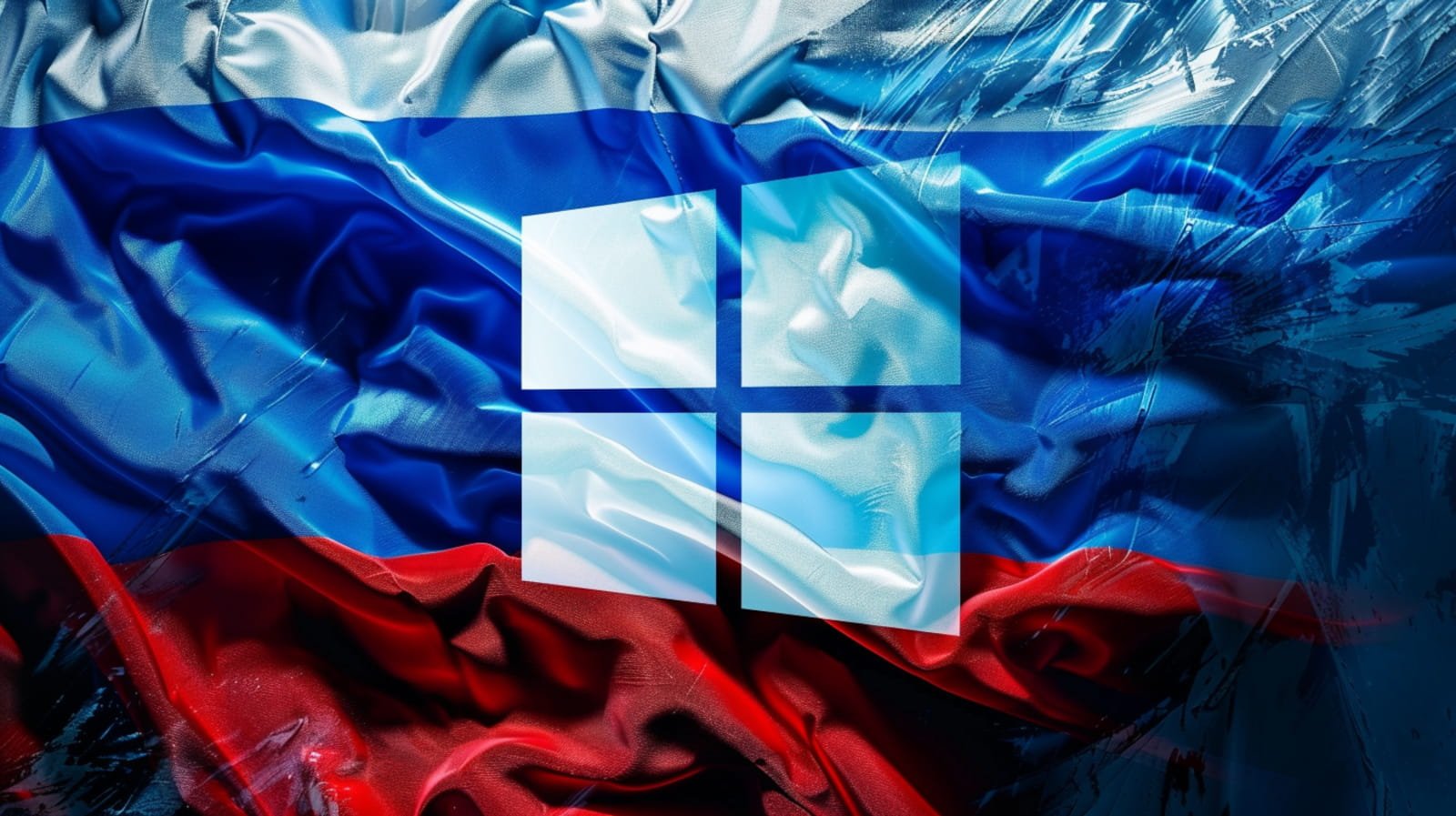- March 23, 2024
- 10:14 AM
- 0

Microsoft plans to limit access to over fifty cloud products for Russian organizations by the end of March as part of the sanctions requirements against the country issued by EU regulators last December.
The suspension was initially scheduled for March 20, 2024, but it was moved to the end of the month to give impacted entities more time to set up alternative solutions.
The news of these impending suspensions was first reported by the Softline Group of Companies, one of Russia's largest remaining IT service providers.
"On behalf of Softline Group of Companies, we confirm receipt of official information from Microsoft and Amazon about the suspension of access to cloud products in Russia from March 20, 2024," says Softline's machine-translated post.
"In this regard, Softline Group of Companies warns about possible functional limitations in the operation of cloud products and services from Microsoft, Amazon and Google."
Softline shared the letter from Microsoft on Telegram, which states that the suspensions are due to EU Council Regulation 2023/2873, enacted last December.
"As you may know, the European Union recently imposed new economic sanctions that, effective March 20, 2024, prohibit Microsoft from supplying certain management or design software (including cloud-based solutions) to entities incorporated in Russia.
Microsoft has identified that one or more of your subscriptions or bundled services appear to be subject to these prohibitions. Microsoft is committed to compliance with EU trade laws and regulations, as well as all other jurisdictions in which it operates.
In compliance with these government mandates, Microsoft must terminate these subscriptions by March 20, 2024, absent future EU guidance that would change this determination or a general or specific authorization from EU regulators.
After March 20, 2024, you will not be able to access those Microsoft products or services, or any data stored in them." - Microsoft.
Reportedly, after conversations with Softline, Microsoft agreed to postpone suspending the services until the end of March.
Microsoft's letter did not specify which services would be pulled, but TASS has compiled a list of over 50 products that will be unavailable at the end of March.
Some of the most important products that will have their license keys invalidated are:
- Microsoft Azure: Cloud platform for computing, analytics, storage, and networking services.
- Dynamics 365: ERP and CRM applications for business process and customer relationship management.
- Microsoft Teams: Collaboration and communication platform for modern workplaces.
- Power BI: Business analytics tool for data visualization and informed decision-making.
- SQL Server: A database management system for secure and reliable data storage, management, and analysis.
- Visual Studio: Integrated development environment (IDE) for software development across multiple languages.
- Power Automate: Workflow automation tool across various applications and services to increase efficiency.
- SharePoint: Document management and collaboration platform for project and document-centric processes.
- Intune: Endpoint management solution for managing mobile devices and applications securely.
- Dynamics AX/NAV: ERP solutions for financial, HR, and operations management in medium to large businesses.
- Microsoft 365: Suite including Office apps, cloud services, and security for comprehensive productivity and collaboration.
- OneDrive: Cloud storage service for saving files and photos, facilitating sharing and access from anywhere.
- Excel: Spreadsheet application for data analysis, visualization, and comprehensive calculation capabilities.
In addition to the above, Microsoft will block access to LinkedIn-related software and the Media Player development kits.
It has been clarified that the invalidation of licenses impacts Russian companies and organizations engaging in architecture, design, construction, manufacturing, media, education and entertainment, building information modeling (BIM), computer-aided design (CAD), and computer-aided manufacturing (CAM).
However, no plans to restrict access to individuals were announced, so the mentioned products are assumed to remain available to regular users.
Though this wasn't an entirely unexpected development given that Ukraine's situation remains unchanged, many Russian entities previously opted to purchase subscriptions to Microsoft products using foreign accounts or other bypasses.
Microsoft has not responded to our multiple emails requesting information about the suspensions.
The same fate is allegedly planned for Amazon, Google, and Oracle cloud services that fall under the same package of sanctions (2023/2873), with Russian users sharing an email on Telegram that they received from Amazon Web Services.

This recent move is anticipated to further steer Russian consumers and businesses towards embracing locally developed alternatives, replacing Western-made products.
This shift aligns with the Russian government's efforts to promote domestic solutions through various strategies.



